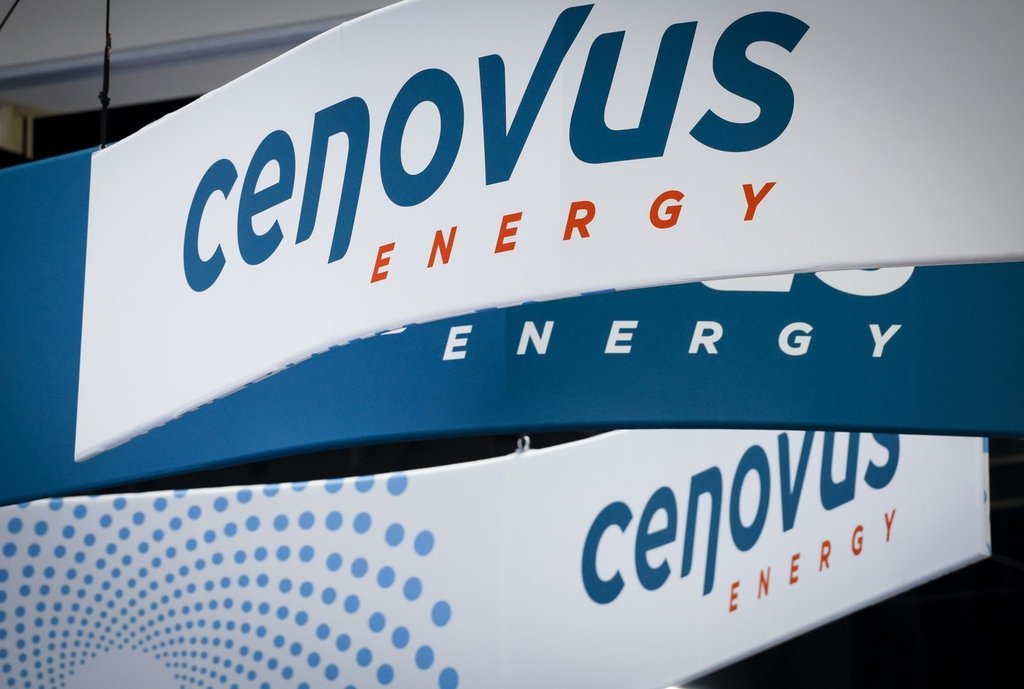The threat of U.S. tariffs on Canadian energy won’t affect planned spending by Cenovus Energy Inc., but the company says such levies may prompt a “rebalancing away from the United States” when it comes to where it ships its oil.
U.S. President Donald Trump’s plan to slap widespread tariffs on U.S. imports of Canadian goods is on hold until March. Trump had previously signed an executive order that would impose a 10 per cent tax on Canadian energy products, along with 25 per cent tariffs on all other goods.
Speaking on Cenovus’s fourth-quarter earnings call on Thursday, president and CEO Jon McKenzie said the tariffs could affect “so many of the variables that impact our cash flow,” including oil prices.
“But there’s also knock-on impacts on the price of condensate, the price of natural gas, which are all inputs to our business,” McKenzie told analysts.
He added U.S. refining margins and foreign exchange rates could also take a hit if the tariff threat comes to pass.
“So when you look at the spectrum of all the things that impact our cash flow, it’s really not clear to us who’s going to pay which portion of the tariff, as well as what the overall impact would be to the company,” he said.
That could include a pivot when it comes to where oil products transported along the Trans Mountain pipeline are exported, said Geoff Murray, executive vice-president of commercial for Cenovus.
“I think we would see … a rebalancing away from the United States and the balance to head globally,” he said.
2:01
Trump has threatened a 10% tariff on Canadian oil – how will it impact the industry?
There has generally been a 50/50 split between California and Asia for deliveries of oil transported along the pipeline, said Murray.
“Without tariffs, that continues unabated. Should tariffs show up, that would obviously look to an economic reason for rebalancing,” he said.
“We expect that would obviously drive as much volume as possible through Trans Mountain, perhaps beyond the contracted capacity, provided that volume can find a home out the dock, and then it would preferentially head globally, rather than to California.”
Asked if the tariffs would affect Cenovus’s spending plans for 2025, McKenzie said the company has already limited its capital spending to “fairly modest levels” and is in the process of completing a few major projects.
“I don’t think there’s anything on the tariff side that would change any of our operating plans this year or in the near future,” he said.
1:37
Tariff pause cautiously welcomed by Alberta energy, business experts
Trending Now
Arizona plane crash kills at least 2 people after midair collision
1 month shy of her 113th birthday, Canada’s oldest person shares some wisdom
McKenzie highlighted milestones associated with a few of its projects in the fourth quarter, including the mechanical completion of the Narrows Lake pipeline.
The 17-kilometre pipeline connecting its Narrows Lake oilsands reservoir to its Christina Lake main processing facility is expected to result in up to 30,000 barrels per day of additional production from the site, starting in mid-2025.
Mechanical work was also completed on the concrete gravity structure and topsides for the West White Rose project off the coast of Newfoundland.
West White Rose, a multi-billion-dollar extension of the existing White Rose offshore oilfield, is now 88 per cent complete and on pace to produce its first oil in 2026, McKenzie said.
On Thursday, the Calgary-based company reported its fourth-quarter profit and revenue fell compared with a year ago as it saw lower oil and natural gas prices.
Cenovus said it earned $146 million or seven cents per diluted share for the quarter ended Dec. 31, down from $743 million or 32 cents per diluted share in the final three months of 2023.
Cenovus said its adjusted funds flow amounted to 87 cents per diluted share in its latest quarter, down from $1.08 per diluted share a year earlier.
Revenue totalled $12.8 billion, down from $13.1 billion a year earlier.
Total upstream production for the quarter amounted to 816,000 barrels of oil equivalent per day, up from 808,600 a year earlier. Downstream throughput amounted to 666,700 barrels per day, up from 579,100 in the fourth quarter of 2023.
Cenovus’s net debt at the end of 2024 was $4.6 billion, an increase of around $420 million from the previous quarter. It was also above the company’s target of $4 billion, a milestone it had previously reached in its second quarter.
McKenzie said the net debt increase reflected a weakened Canadian dollar, a temporary buildup in inventory of around 22,000 barrels per day, along with its share buyback program.


